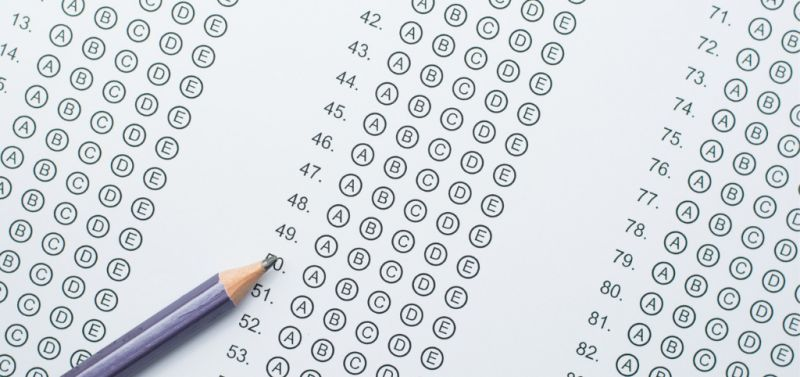Should We Keep Standardized Tests?
Almost every school in the United States requires students to take standardized tests, but do they actually show how intelligent students are?
The effectiveness of the standardized test is being called into question.
November 18, 2020
Standardized tests are something almost every student has to prepare for. Doing well on them can lead to being accepted into prestigious universities, receiving scholarships, and having a better chance at living a comfortable and wealthy life. Doing poorly on them can set people up for failure and struggle in their adult life. With the COVID-19 pandemic, many schools have had to modify the way they do standardized testing, or cancel them outright. These changes have brought up many questions and debates, including whether or not standardized tests are actually even effective for showing a student’s intelligence, and if standardized tests should still be used going forward.
Before looking at the effectiveness of standardized tests, it’s important to understand why they are used in the first place. According to Psychology Today, these tests were developed as a way to give everyone a fair chance. They are supposed to provide a fair way for students to be compared against each other, without involving anything outside the tests.
However, while the tests were made in order to help students and give them all a fair chance, many people argue that they have ended up hurting students in several ways, and don’t accurately show how intelligent students are. Inside Higher ED states that standardized tests only test subjects taught in schools, not how those subjects, or the skills associated with them, are applied to the real world. While it is certainly true that these subjects are important, they don’t do much to show how a student can function as a adult in society, which is what the tests are effectively used to determine. Psychology Today expressed a similar concern, saying that standardized tests can find students who are good at memorization and studying, but fails to identify students with practical skills. Students who can’t study well are left behind, even if they have many other useful skills. Overall, tests do more to find students’ weaknesses, rather than their strengths.
On the other side of the debate, people argue that standardized tests still provide the fairest way of judging students. The Fordham Institute has said that such tests have three major benefits: objectivity, comparability, and accountability. Firstly, the tests grade all students the same, so everyone’s scores are based on only how well they did. If universities only looked at the grades students got in their classes, students with a lenient teacher would appear to be much more intelligent than students with a strict teacher. Secondly, since the tests are the same for all students, it allows organizations to easily compare students against one another. Lastly, tests hold teachers and schools accountable by allowing parents to see how well their students are being taught.
In the end, standardized tests have both positives and negatives. While they were made to give everyone a fair chance, they don’t guarantee that every student has an equal chance going into them. They also do more to test a students ability to study and retain information, rather than their ability to problem solve and work in unique situations. However, the tests do allow organizations to compare students against each other, and provide a way to judge everyone by the same standards. Either way, standardized tests are being looked into more and more, and the debates regarding them are still ongoing.









